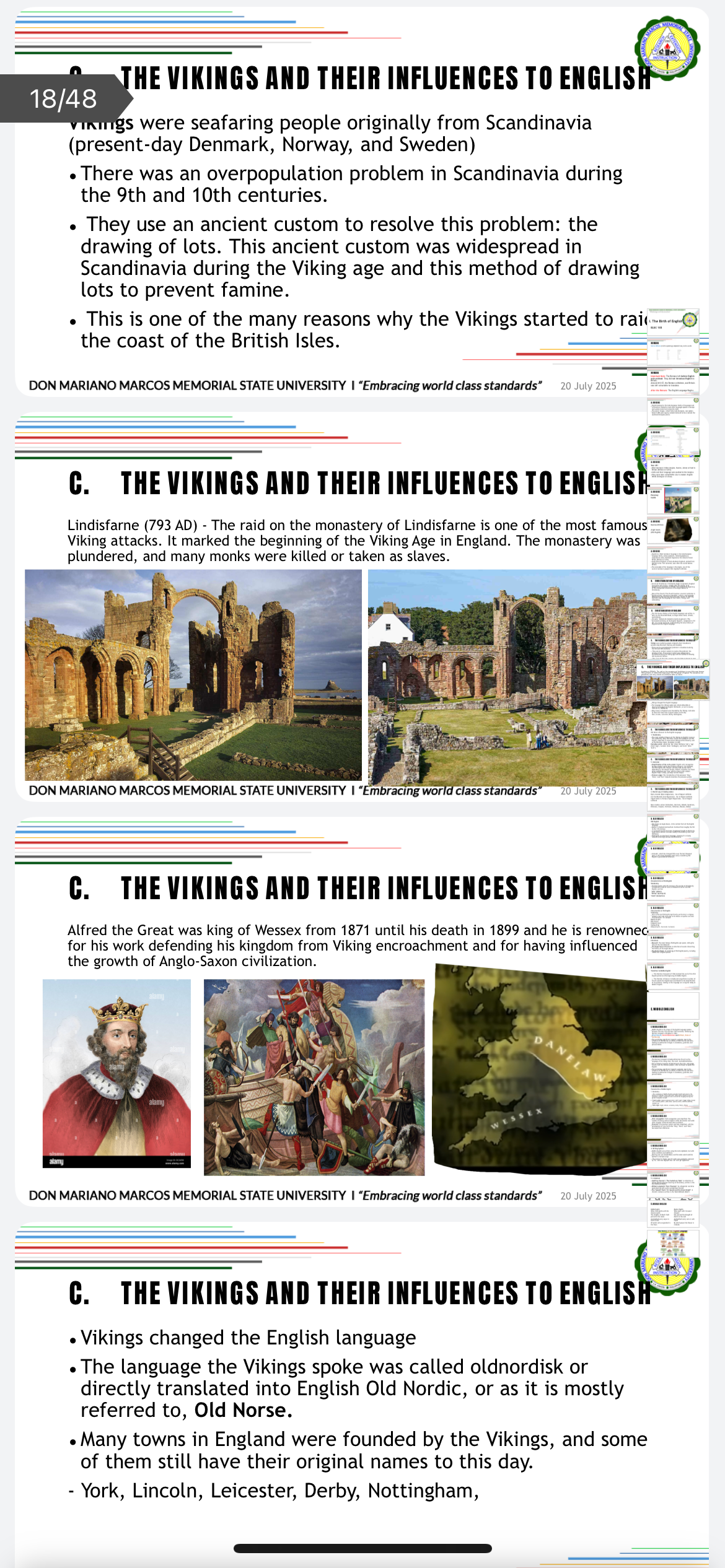Origins and Early Influences on the English Language
1/23
Earn XP
Description and Tags
These flashcards review key points on Roman Britain, the Indo-European roots of English, Anglo-Saxon settlement, Celtic survivals, Christianization, and early historical sources.
Name | Mastery | Learn | Test | Matching | Spaced |
|---|
No study sessions yet.
24 Terms
In what year did the Romans invade Britain and which emperor led the invasion?
43 CE, under Emperor Claudius.
For roughly how many years did Roman rule last in Britain?
Nearly 400 years (43 – 410 CE).
What was the official language of Roman Britain?
Latin.
Which Latin word meaning "high place" is the root of the English word "altar"?
Altare.
Which Latin word meaning "messenger" became the English word "angel"?
Angelus.
Which Latin adjective meaning "holy" is the source of the English word "saint"?
Sanctus.
From which Latin term meaning "elder" does the English word "priest" derive?
Presbyter.
What Latin word meaning "sacred place" gave rise to the English word "temple"?
Templum.
What major event around 410 CE ended Roman control of Britain?
The Romans withdrew their troops, leaving Britain open to new invasions.
To which language family does English belong?
The Indo-European family.
What is the reconstructed ancestor language of the Indo-European family called?
Proto-Indo-European.
Within the Indo-European family, which branch does English belong to?
The Germanic branch, specifically West Germanic.
Which living language is considered most closely related to Modern English?
Frisian.
Name the three West Germanic tribes that migrated to Britain beginning in the late 5th century.
The Angles, Saxons, and Jutes.
Which Celtic-speaking people were pushed to the margins by the Anglo-Saxons, and what Old English word meaning "foreigner/slave" came to describe them?
The Britons (Celts); they were called "Welsh."
Give three Celtic words that survived into Modern English.
Crag, combe, and tor.
Provide two place or river names of Celtic origin that still exist in Britain.
Examples include Thames, Avon, and London.
Why is the language called "English"?
It is named after the Angles, one of the Germanic tribes that settled in Britain.
During which centuries did Anglo-Saxon (Early Medieval) England exist?
From the 5th to the 11th centuries.
Who led the mission that began the widespread Christianization of the Anglo-Saxons in 597 AD?
St. Augustine of Canterbury.
In early medieval England, which language did the Church use for liturgy and scholarship?
Latin.
Who wrote the first known history of the English people, what was its title, and in what language was it written?
The Venerable Bede wrote "Historia Ecclesiastica Gentis Anglorum" (Ecclesiastical History of the English People) in Latin.
